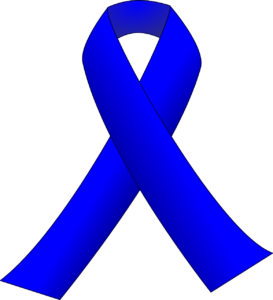It is important that everyone is screened for colon cancer. No longer is it the “old person’s disease”, colon cancer rates is on the rise for those between 20-49. Chadwick Bozeman was only 43 when he died from colorectal cancer. Whether you are noticing any symptoms or not, it is essential to get screened.
 “Most people, when they think of colon cancer, think of someone being old,” said Dr. Saundra Dalton-Smith, an internal medicine physician in Alabama, told NBC News.“You don’t think of someone who was in their early 40s, like Chadwick, definitely not someone who looked as healthy as he did. So, I think it really helps people to wake up to just how easy it is for this particular cancer to be active and do harm in your body without you being aware of it.
“Most people, when they think of colon cancer, think of someone being old,” said Dr. Saundra Dalton-Smith, an internal medicine physician in Alabama, told NBC News.“You don’t think of someone who was in their early 40s, like Chadwick, definitely not someone who looked as healthy as he did. So, I think it really helps people to wake up to just how easy it is for this particular cancer to be active and do harm in your body without you being aware of it.
“And I think that was probably the No. 1 thing that came out of his death because a lot of patients did start asking specific questions like, ‘What do I need to look for as symptoms?’ So, awareness definitely increased.”
Colorectal cancer is the third most common. Colon cancer is the cancer of the colon, the large intestine. The colon is the final part of your digestive tract. The good, and bad, part of how most cases of colon cancer begins as a small and benign clump of cells. Note that benign means noncancerous.
This clump of cells is called adenomatous polyps. Over time, these polyps can become cancerous. Polyps may be very small and produce few or no symptoms at all. Because the cancer may not produce any symptoms, this makes it extremely important to get regular screening tests.
With a couple of colon cancer screening types on the market, which one is best for you?
Facts about screening colonoscopy
Affordable
Most health insurance plans cover screening colonoscopies, making it easy to get an affordable procedure at an outpatient or independent surgery center. Without the high cost associated with hospitals.
Accuracy
 A colonoscopy is much more accurate than an at home colon cancer screening kits.
A colonoscopy is much more accurate than an at home colon cancer screening kits.
Thorough and specific
A colonoscopy detects other digestive diseases and conditions. As well as, identify and detect early signs of colon cancer.
Diagnostic as well as preventative
During a colonoscopy, if a polyp is detected, it can be biopsied and even removed during the procedure.
In your control
By choosing a trained gastroenterologist and industry leading surgery center, you can have a high quality colonoscopy.
Fact about at home colon cancer screening kits
Convenient
Home screening kits are very convenient, they take place in the privacy of your bathroom. You don’t even have to leave your home.
 Limited
Limited
Home screening kits detect 42% of potentially precancerous adenomas and 92% of colon cancers. When compared to colonoscopy, the results are less accurate.
Accuracy
Colon cancer screening kits have a 13% false positive rate.
Low cost
Typically these kits are covered by health insurance. When compared to a colonoscopy, home kits have a lower “retail price”.
Potentially costly
If you receive a positive result from a home kit, the next stop is a colonoscopy with a gastroenterologist. Which does not always quality as a preventative health benefit with your insurance company.
“If these tests show abnormal signs of blood or DNA changes, a colonoscopy will need to be done to see if you have cancer. It’s important to remember that abnormal results do not necessarily mean that you have cancer because they can be caused by a non-cancerous condition, such as ulcers or hemorrhoids,” American Cancer Society.
It is estimated 50,000 die of colorectal cancer annually. If detected early, it is one of the most treatable forms of cancer. Preventative screening and testing help detect diseases and conditions in their early and most treatable stages. For more information or to make an appointment, contact Gastroenterology Consultants of Central Florida.
